What am I doing here?
Finland has been my home for the past 2 years. Prior to that, I lived in Paris, France for 3 years. So I am a long way from home, which is in Santa Fe, New Mexico, USA (Ever seen Breaking Bad?). Through these last few years of moving to new countries where I know absolutely no one, and go in without even being able to speak the language, I have acquired quite the portfolio of cultural shocks and events that have morphed me into the person I am today.
I have quite the unique case in that I moved to Finland for love. Meaning that I have noted my experience of moving to Finland differs from other internationals. When moving to Finland I was, in essence, also joining a Finnish family; my wife’s family. It’s vital to note that this variable has played a very significant role in my integration and experience of Finland and Finnishness, which can differ greatly from that of someone who is here strictly as an international/exchange student, or an expat; in other words, I have probably gotten to interact with a lot more Finns than most, and genuinely seen the in’s and out’s of what it’s like to be in a Finnish family, and partake in their way of life. With that, I have attempted to condense and generalize the top three themes I would use to describe Finland and Finnishness.
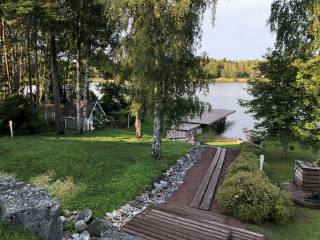
An Individualist’s Utopia
Not too long after I had settled into Finland I was gifted a book by a family-friend of my wife. “The Nordic Theory of Everything: In Search of a Better Life” by Anu Partanen, is a book written by a Finnish journalist, now a naturalized U.S. citizen, asking Americans to draw on elements of the Nordic way of life to nurture a fairer, happier, more secure, and less stressful society for themselves and their children. It was through this book that I was able to more easily interpret the new society which I was now attempting to join.
One of my biggest takeaways from this book is that Finland is a very individualistic country. The West is often categorized as being more individualistic in general compared to our Eastern neighbours, but Finland and the other Nordics take it to the extreme. One example that I can give are the way Finns are renowned for being quiet, reserved, and isolated. It adds to the individualistic argument in that everyone keeps to themselves, and its not the default to be overtly communal, to enjoy large gatherings, or partake in events that ask for a lot of socialization (unless alcohol or hockey is involved). There are pros and cons to this, from my point of view. The positives is that it allows for people to be very self-efficient, self-reliant, and self-sustainable. Everyone is able to handle their own, and it’s a “live and let live” approach to life that I can genuinely appreciate. Negatives can be seen in that some Finns are socially awkward or incompetent, with some lacking a basic level of confidence. This can then go even deeper and darker with the high levels of loneliness and depression that can be found in Finnish society.
Another example that helps reinforce this argument is the role of the Finnish Government and it’s welfare system. Of course, others may have their own opinions, most coming from Finns, but the way I see it, the government and welfare system work to, in the end, allow it’s citizens be as “free” to do and be as individual as they can be. What does this mean? I’ll use Finland and my home country for comparison. One example can be public health-care. Without getting too technical or political, Finland’s system is one in that everyone has the right to health care services, and it is not determined by your employer, or your parents, or your income. You can live “freely” knowing that in the end you do not have to rely on anyone else to get whatever sort of help you may need. Where as in the USA, that is not entirely the case. The type of health care you may receive does entirely depend on a third-party, be it your job, your parents, or your income. Another example that’s maybe more relevant for us Finnish University students is Kela. All higher education students in Finland who qualify for student benefits will get those student benefits, and that is not determined by how much your parents make, or where you study, or what you study. It’s based entirely on the individual and is set in place to allow the individual to be as self-reliant as they can be and not have to depend on anyone or anything else for their own freedoms.

One with Nature
Regardless of specific ideologies or political leanings, there is an irrefutable appreciation and cohesion between Finnish society & culture, and with nature. Nature is perhaps the first word that comes into my mind when I think of Finland. With more than 75% of the country being forest, it’s no surprise that it plays such a vital role in the Finnish way of life. You can be in the most urban of environments, like Tampere (Manchester of the North, as they say), and still have beautiful nature at your door steps. It seems that everyone’s grandma out in the country side makes their pastries with freshly picked berries, and every summer is only ever complete with a proper juhannus at the cottage, slapping mosquitos away every 3 seconds.
As the world becomes ever more environmentally aware and conscious, I believe Finland has an advantage by (as Americans would say) playing on their home field. By maintaining this appreciation and connection with nature, Finland will continue to be the beautiful country that it is, and set an example for the rest of the world. I genuinely and optimistically believe, that Finland will help lead the new way of the world, which leads me to my final point.

A New and Evolving Society
Finland is a rather new country when you think about it. But at only 106 years old, Finland has gained quite the resume of accomplishments and titles which gives a lot of Finns reason to be proud of their country and identity. Towards the end of the 20th century Finland truly took off, taking advantage of the technological boom that helped enrich the country, and made it a significant player on the world stage. Now, Finland is very technologically advanced society, with education levels worth being proud of, and a model and testament for other countries looking to follow in the Dancing Lady’s footsteps.
Finland is also an evolving society. I think it’s safe to say that most Finns’ grandparents lived in a vastly different Finland than that of today’s, and that this distinction is probably also more dramatic than if you were to compare to other countries like the UK, USA, or France. I think it is due to the country being so new, that sometimes evolving can be hard for the society to accept. Finns have for so long been just amongst themselves, in some sense isolated from the rest of the world until only the last century. So it is understandable why new changes can bring rise to a response of fear, sort of like a defence mechanism. But I for one am an optimist who likes to believe that in the end Finland will overcome these fears, allowing it to evolve and grow into an even “happier” country for the world to admire.
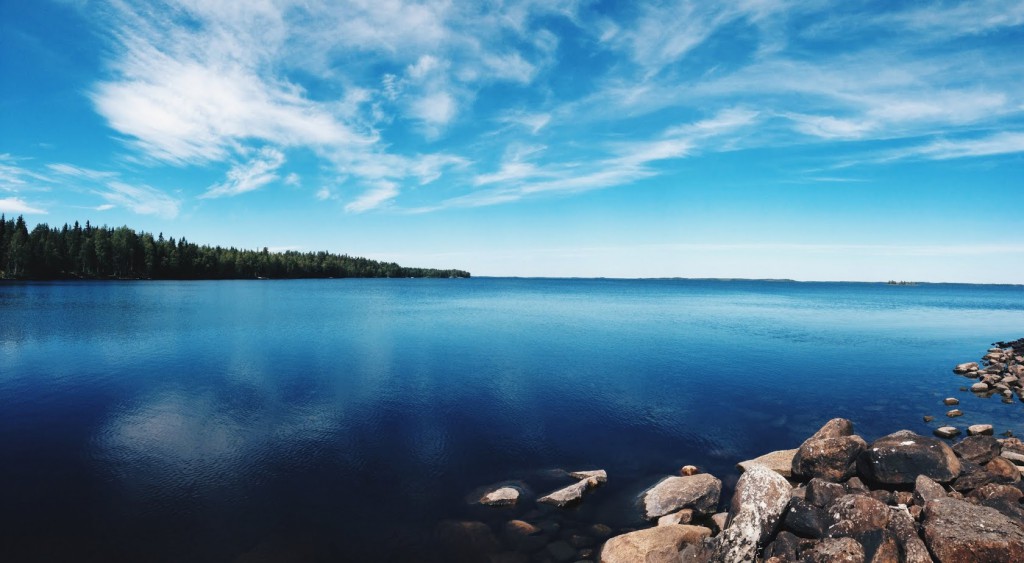
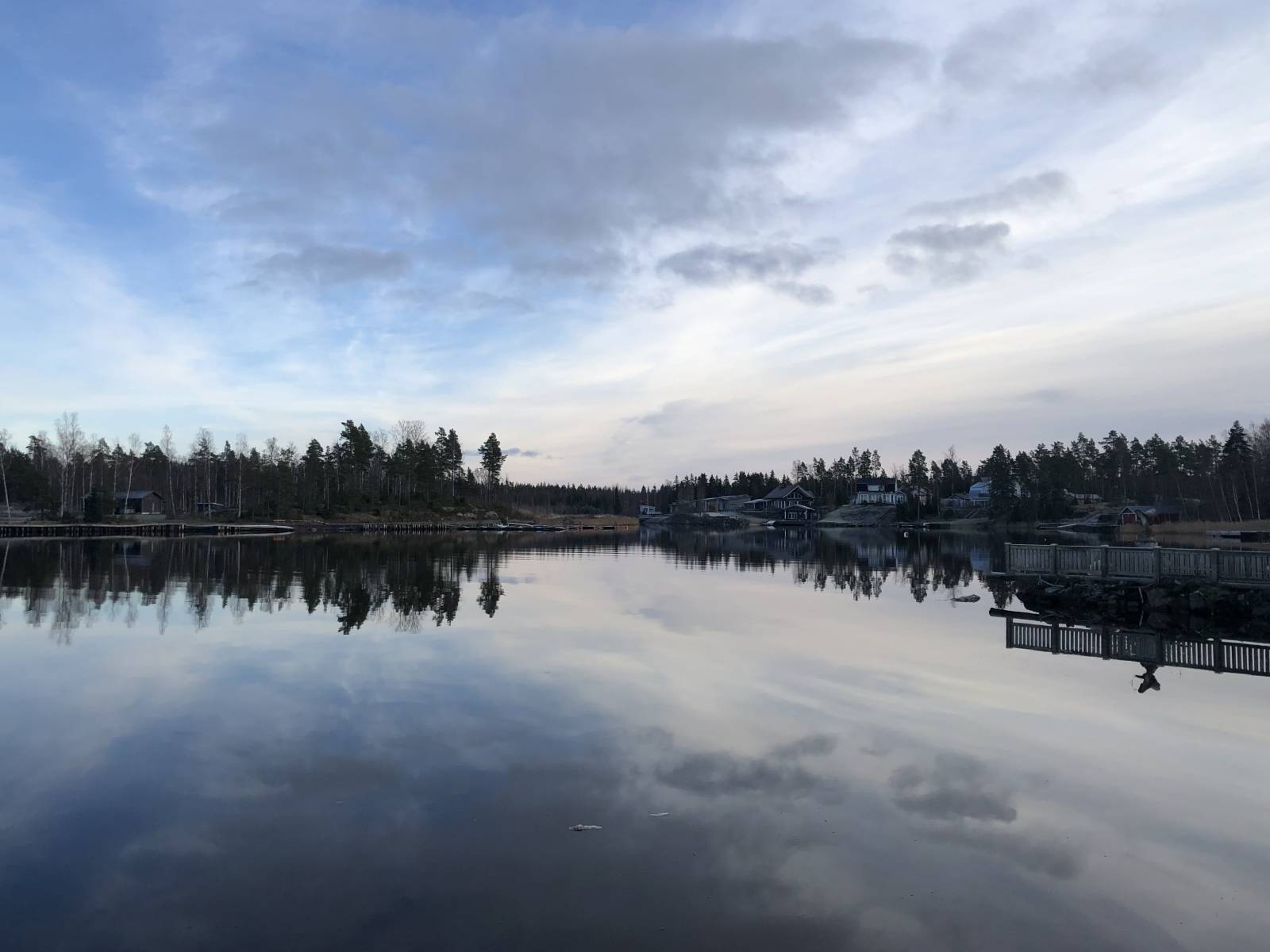

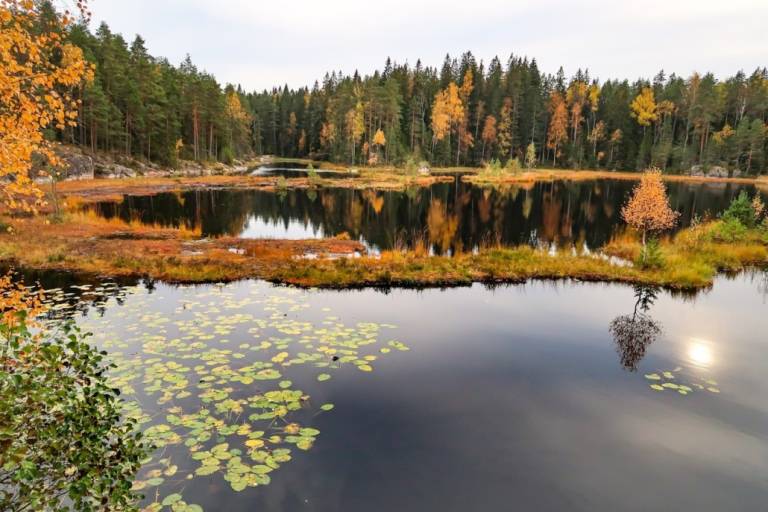
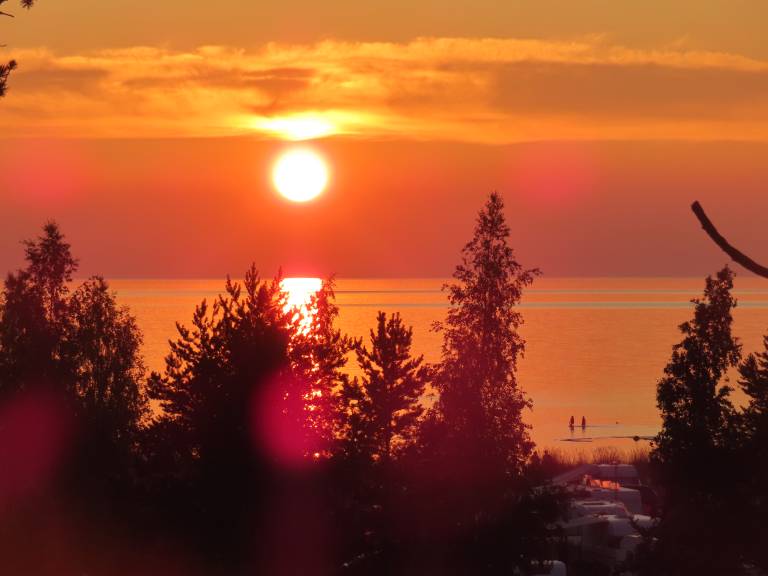

Comments